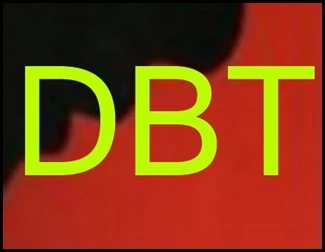 Here's another therapy you shouldn't be surprised to see appear on the social work licensing exam: Dialectical Behavioral Therapy (DBT). What's DBT? Here are some quick answers to that question--thank the Internet:
Here's another therapy you shouldn't be surprised to see appear on the social work licensing exam: Dialectical Behavioral Therapy (DBT). What's DBT? Here are some quick answers to that question--thank the Internet:
That last link--from the source--includes this quick and helpful summary:
Dialectical Behavior Therapy (DBT), developed by Marsha Linehan, Ph.D., ABPP, at the University of Washington, is a comprehensive cognitive-behavioral treatment that was originally developed to treat chronically suicidal individuals suffering from borderline personality disorder (BPD). DBT has been found especially effective for those with suicidal and other multiply occurring severely dysfunctional behaviors. Research has shown DBT to be effective in reducing suicidal behavior, psychiatric hospitalization, treatment dropout, substance abuse, anger, and interpersonal difficulties.
Key here: DBT, BPD, "research has shown." This last phrase is essential for any therapy you're tempted to think of as a BEST choice on the exam. How might a DBT question look on the exam? Maybe something like this: On intake, a social worker notes that a client struggles with relationships, often idealizing, then devaluing people in her life (Substitute any combination of BPD symptoms here). What would be the BEST therapy to try with this new client? A) CBT B) DBT C) IPT D) Psychodynamic therapy. Since you're in a DBT blog post, the answer should come extra easily. The question being asked is, do you know what DBT is? Do you know what it treats? You do? Great. Right answer, next question.
For more detail about DBT, here are a pair of podcasts, ready to fill your ears with wisdom:
Consider yourself prepped on DBT! Good luck with the exam. For more practice, including questions about DBT, sign up with SWTP!
April 21, 2014
Categories :

 Here's another therapy you shouldn't be surprised to see appear on the social work licensing exam: Dialectical Behavioral Therapy (DBT). What's DBT? Here are some quick answers to that question--thank the Internet:
Here's another therapy you shouldn't be surprised to see appear on the social work licensing exam: Dialectical Behavioral Therapy (DBT). What's DBT? Here are some quick answers to that question--thank the Internet: